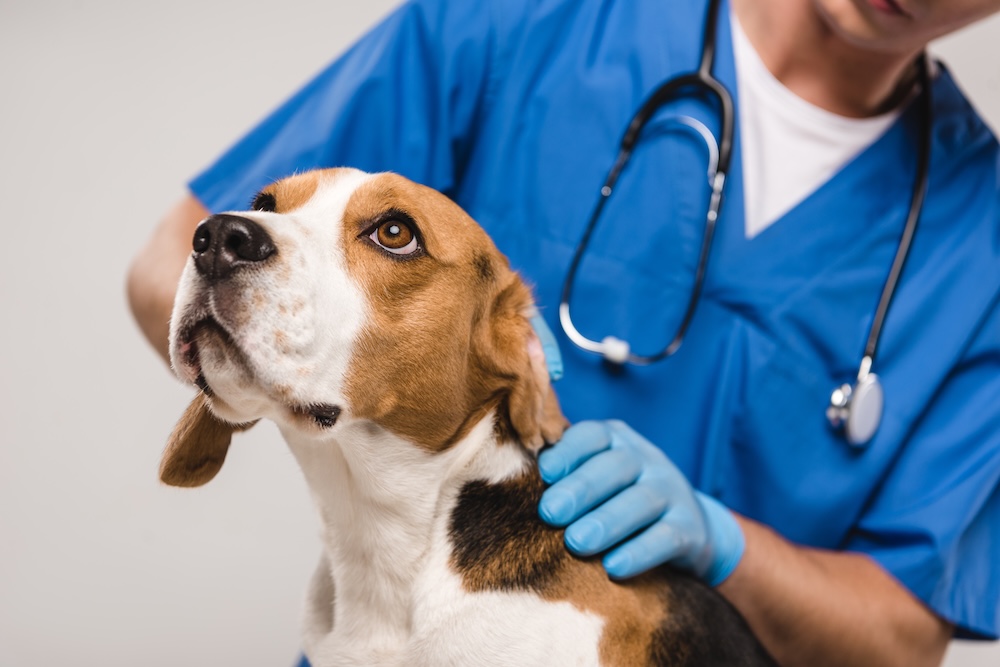At Faithful Friends Veterinary Clinic, we believe that knowledge is one of the most powerful tools pet owners can have at their disposal. Pancreatic cancer, while relatively rare in dogs, is a serious disease that can have significant implications for a dog’s health. Understanding the signs, causes, and treatment options for pancreatic cancer can help you make informed decisions about your pet’s health care. This article aims to provide a comprehensive overview of pancreatic cancer in dogs, offering insights into how to manage this challenging condition.
What is Pancreatic Cancer?
Pancreatic cancer involves the uncontrolled growth of abnormal cells within the pancreas, an essential organ that lies near the stomach and small intestine. The pancreas plays a crucial role in digestion and hormone regulation, including the production of insulin. There are two primary types of pancreatic cancer in dogs:
- Exocrine tumors: These are more common and arise from the cells that produce digestive enzymes.
- Endocrine tumors: These tumors are less common and develop in the cells that produce hormones like insulin.
Signs & Symptoms of Pancreatic Cancer in Dogs
Identifying pancreatic cancer in its early stages can be challenging due to the often subtle and nonspecific nature of its symptoms. Dogs suffering from pancreatic cancer might exhibit a range of signs that, at first glance, could be mistaken for less serious conditions. One of the most common indications is a significant decrease in appetite, which may lead to noticeable weight loss over time. This lack of interest in food is frequently accompanied by episodes of vomiting, which can further complicate the dog’s nutritional status.
As the disease progresses, dogs might exhibit signs of abdominal pain. They may become less active, seeking out secluded spots to rest undisturbed, or react negatively to their abdomen being touched. Another concerning symptom is jaundice, characterized by a yellowish discoloration of the gums, eyes, or skin, indicating that the cancer may be impacting liver function.
In cases where an endocrine tumor is involved, affecting the insulin-producing cells of the pancreas, symptoms related to diabetes can also manifest. These include increased thirst and urination, alongside the aforementioned loss of appetite and weight loss. Such symptoms necessitate immediate veterinary attention to assess the underlying cause and to manage any potential complications effectively.
Due to the generalized nature of these symptoms and their potential overlap with other conditions, any combination of them should prompt a consultation with a veterinarian. Early detection through vigilant observation of these signs can significantly influence the management and outcome of pancreatic cancer in dogs.
Causes and Risk Factors
The exact causes of pancreatic cancer in dogs are not well understood, but several risk factors may increase a dog’s likelihood of developing this disease:
- Age: Older dogs are more commonly affected.
- Breed: Certain breeds, such as Airedale Terriers and Boxers, might be predisposed to pancreatic cancer.
- Diet and Obesity: High-fat diets and obesity may increase the risk of pancreatic problems, potentially leading to cancer.
Diagnosing Pancreatic Cancer
Early diagnosis can significantly impact the management of pancreatic cancer. If your dog shows any symptoms of pancreatic disease, a thorough evaluation by a veterinarian is crucial. Diagnostic tools may include:
- Blood tests, including specific tests for pancreatic function
- Ultrasound or CT scans to visualize the pancreas and surrounding organs
- Biopsy of pancreatic tissue, often the definitive method for diagnosing cancer
Treatment Options
At Faithful Friends Veterinary Clinic, we are equipped to manage and treat pancreatic cancer in dogs with a comprehensive and compassionate approach. Our treatment protocol typically begins with a thorough diagnostic assessment, including advanced imaging and blood tests, to confirm the presence of cancer and assess its stage.
Treatment options for pancreatic cancer depend on the type and stage of the disease:
- Surgery: If the tumor is localized and operable, surgery may be performed to remove it.
- Chemotherapy: This may be recommended following surgery or in cases where surgery isn’t feasible.
- Radiation therapy: Sometimes used in conjunction with other treatments.
- Palliative care: For advanced cases, the focus may shift to making the dog as comfortable as possible with pain management and supportive care.
Depending on the individual case, treatment options may include surgical removal of the tumor if it is localized and operable. In instances where surgery is not feasible, or in conjunction with surgery, we may recommend chemotherapy to help control the spread of cancer. For all treatment paths, our dedicated veterinary team provides ongoing support, including pain management and nutritional guidance, to ensure the best quality of life for your pet. Our approach is always tailored to the specific needs of each dog and their family, emphasizing clear communication and compassionate care throughout the treatment process.
Managing Your Dog’s Quality of Life
Managing a dog with pancreatic cancer requires a collaborative approach between the pet owner and the veterinary team. Nutritional support, regular monitoring, and adjustments to treatment plans are essential components of care. It’s also important to recognize when your dog’s quality of life has deteriorated to a point where humane euthanasia might be considered, a difficult yet sometimes necessary decision.
Trust the Experts
At Faithful Friends Veterinary Clinic, our team is dedicated to providing compassionate and comprehensive care for dogs with pancreatic cancer. We understand the emotional challenges that come with managing a serious illness in a beloved pet, and we’re here to support you every step of the way. Early detection and prompt intervention are key, so we encourage you to contact us if you notice any concerning symptoms in your dog. Together, we can work towards providing the best possible care and improving your dog’s quality of life.




